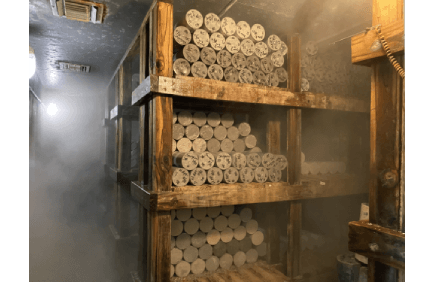How does CMT Lab Software increase efficiency and streamline operations in CMT Labs?
August 19, 2021
Any engineering firm that provides Quality Control (QC) services to the construction industry must have access to an accredited Constructions Materials Testing (CMT) laboratory. To maintain the highest standards of material testing, you need not only a cutting-edge laboratory, but also a well-trained team of qualified personnel and a robust lab data management and reporting system that can handle construction materials testing both in the field and the lab.
A lab data management system that is part of a comprehensive workflow automation system for CMT that streamlines the entire process from scheduling to field data collection and lab data management to reporting and invoicing is one of the best ways to increase a CMT lab's profit margin without any compromise to quality. A good system would not only increase the lab's efficiency, but it would also increase client and employee satisfaction. Let's take a look at some of the most important features and benefits of a good CMT lab data management system.
1. Automatic scheduling of lab work orders
When you create a work order to collect a sample from the field, an efficient system will prompt you to create a corresponding lab work order. This simplifies the planning and management of lab work orders. Whether it's soil, asphalt, concrete, aggregate, or other material, the lab technicians can be ready and know exactly when and which field samples need to be tested.
2. Easy-to-use interface for lab data entry and reporting
Getting rid of paper forms and spreadsheets in the lab not only provides an audit trail, but it also reduces transcription errors and eliminates duplicate data entry. A simple, user-friendly system would make it easier to track and manage all of the samples. Furthermore, operating and reporting procedures can be standardized to increase staff productivity.
3. Manage daily lab activities
Compressive Strength of Concrete Cylinders is a common test performed by most CMT labs. When there aren't that many concrete cylinders, it's easy to keep track of and manage them with a logbook or spreadsheet, but as the volume grows, it's easy to lose track of when to break which cylinder.
Having a system that automatically generates a break schedule with test age (7 days, 28 days, etc.) the moment the concrete cylinders are casted makes it easier to manage and plan your daily breaks. A break summary sheet for any given day or project can be printed, and break results can be entered into the system to generate compressive strength reports that adhere to the required standards including ASTM, AASHTO and state DOT standards. A good system would be able to flag out non-compliance (“failed tests”) to project specifications easily.
4. Audit Trail
An automated lab data management system makes it easier to keep track of samples, such as who performed which tests on which samples and who updated the data with a date and time stamp. This ensures data integrity and an uneditable audit trail. Because all of the data is securely stored in one location with an integrated lab data management system, lab technicians and project managers can easily retrieve the entire test history of a particular project anytime.
5. Manage Equipment & Staff Training
All accredited CMT Laboratories are audited on a regular basis by relevant organizations such as the Construction Materials Engineering Council (CMEC), AASHTO Materials Reference Laboratory Accreditation (AMRL), the US Army Corps of Engineers (USACE), and various state DOTs for compliance to standards in terms of procedures, equipment, and lab personnel qualifications. As a result, labs must have their lab and field equipment calibrated on a regular basis to ensure that the test results generated by the equipment are accurate and reliable. A comprehensive CMT lab system makes this task easier to manage by providing an online equipment inventory and maintenance log that includes all important information about the equipment such as location, serial number, manufacturer, and so on, as well as the ability to set calibration reminders.
Additionally, a good CMT lab management system also helps you keep track of employees’ training to ensure that everyone is in compliance and up to date with their training. This prevents expired certifications and makes it easier to assign the right staff to the right project.
With an online system for tracking equipment inventory and employee training, it's simple to prepare for lab accreditations because you'll have all of the necessary information in one place.
In conclusion, having a CMT lab data management software integrated with a comprehensive workflow automation software increases the overall efficiency of your CMT lab as well as the volume of construction materials that can be processed.
eFieldData, a cloud-based construction materials testing software for workflow automation not only gives you all the above benefits at an affordable price. Request a demo to learn more about eFieldData
